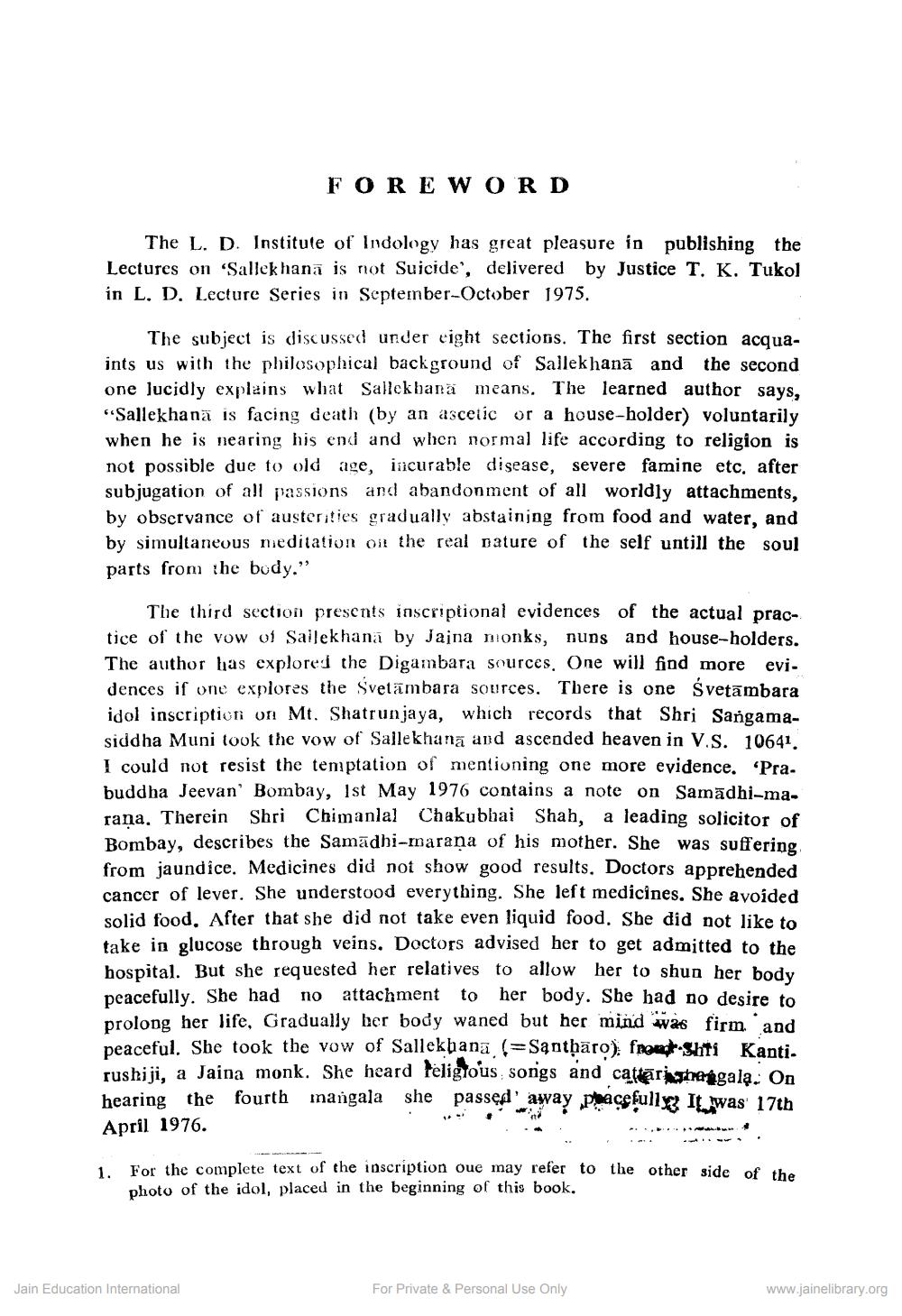Book Title: Sallekhana is Not Suicide Author(s): T K Tukol Publisher: L D Indology Ahmedabad View full book textPage 4
________________ The L. D. Institute of Indology has great pleasure in publishing the Lectures on 'Sallek hana is not Suicide', delivered by Justice T. K. Tukol in L. D. Lecture Series in September-October 1975. FOREWORD The subject is discussed under eight sections. The first section acquaints us with the philosophical background of Sallekhana and the second one lucidly explains what Sallekhana means. The learned author says, "Sallekhana is facing death (by an ascetic or a house-holder) voluntarily when he is nearing his end and when normal life according to religion is not possible due to old age, incurable disease, severe famine etc. after subjugation of all passions and abandonment of all worldly attachments, by observance of austerities gradually abstaining from food and water, and by simultaneous meditation on the real nature of the self untill the soul parts from the body." evi The third section presents inscriptional evidences of the actual practice of the vow of Sailekhana by Jaina monks, nuns and house-holders. The author has explored the Digambara sources. One will find more dences if one explores the Svetämbara sources. There is one Svetambara idol inscription on Mt. Shatrunjaya, which records that Shri Sangamasiddha Muni took the vow of Sallekhana and ascended heaven in V.S. 10641. I could not resist the temptation of mentioning one more evidence. 'Prabuddha Jeevan' Bombay, 1st May 1976 contains a note on Samadhi-marana. Therein Shri Chimanlal Chakubhai Shah, a leading solicitor of Bombay, describes the Samadhi-marana of his mother. She was suffering. from jaundice. Medicines did not show good results. Doctors apprehended cancer of lever. She understood everything. She left medicines. She avoided solid food. After that she did not take even liquid food. She did not like to take in glucose through veins. Doctors advised her to get admitted to the hospital. But she requested her relatives to allow her to shun her body no attachment to peacefully. She had her body. She had no desire to prolong her life, Gradually her body waned but her mind was firm and peaceful. She took the vow of Sallekhana (Santharo) from Shri Kanti. rushiji, a Jaina monk. She heard religious songs and catarie gala. On hearing the fourth mangala she passed away peacefully It was 17th April 1976. 1. For the complete text of the inscription oue may refer to the other side of the photo of the idol, placed in the beginning of this book. Jain Education International For Private & Personal Use Only www.jainelibrary.orgPage Navigation
1 2 3 4 5 6 7 8 9 10 11 12 13 14 15 16 17 18 19 20 21 22 23 24 25 26 27 28 29 30 31 32 33 34 35 36 37 38 39 40 41 42 ... 124
